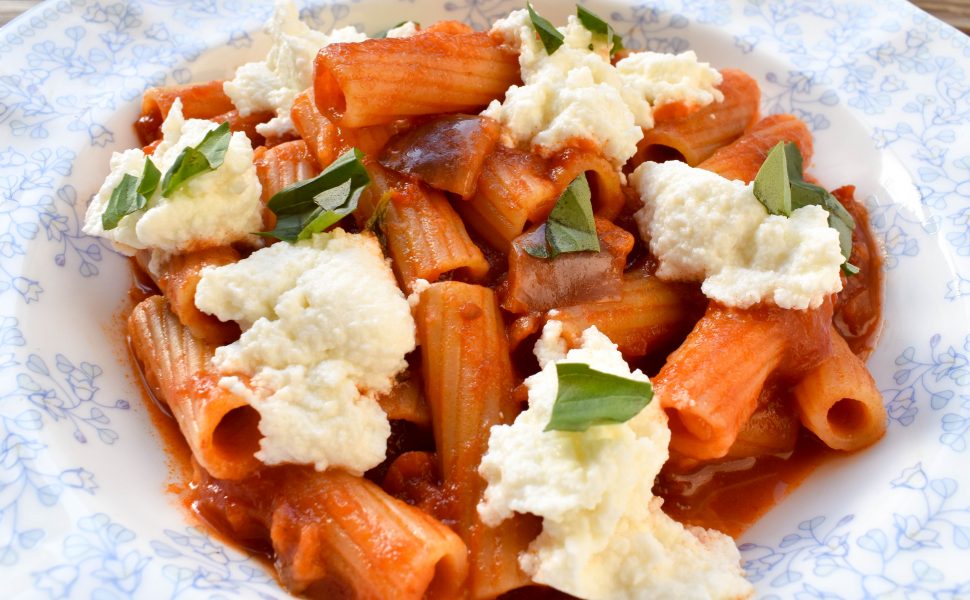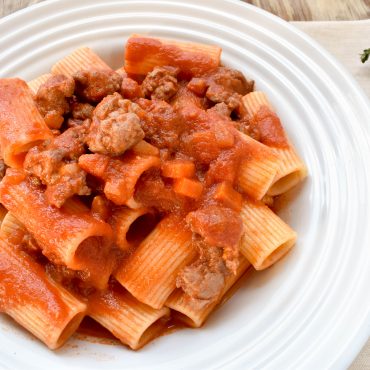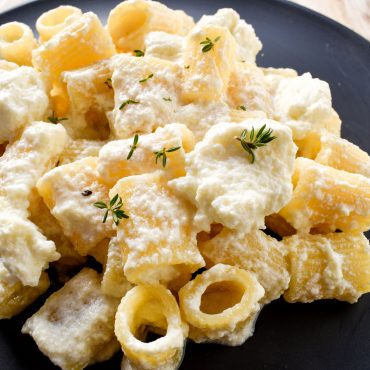Rigatoni pasta alla norma
- 400g rigatoni pasta
- 500g eggplant (aubergine), cut into 2cm thick rounds – see note
- 2 tablespoons (40ml) extra virgin olive oil
- 1 garlic clove, crushed
- 400g canned chopped tomatoes
- 4 large basil leaves, torn
- 200g fresh ricotta, drained
- Sunflower oil for frying
- Sea salt, freshly ground black pepper
Place a generous amount of sunflower oil to cover the base of a large frying pan. Fry the eggplant (aubergine) in batches over medium heat until golden brown and tender. Add more sunflower oil, as required. Drain the eggplant on paper towel. Cut the eggplant into 2cm pieces and set aside.
Meanwhile, place a large pot with water on high heat and bring to the boil. Add the rigatoni pasta and a pinch of salt to the boiling water and cook until ‘al dente’ – refer to the cooking time specified in pasta packet instructions.
Heat the olive oil in a non-stick frying pan (or small stockpot) over medium heat. Add the garlic and cook without browning for 1-2 minutes. Add the chopped tomatoes and bring to a simmer. Cook for a further 7 minutes or until slightly reduced. Return the eggplant to the frying pan and season with salt and pepper to taste.
Drain the pasta, reserving 1 tablespoon (20ml) of the pasta cooking liquid. Add the pasta and reserved cooking water to the frying pan with eggplant and tomato sauce and toss well over the heat for 1 minute to soak up lovely flavour, then remove from the heat.
Divide the Rigatoni pasta alla norma among serving bowls. Add the finishing touch by sprinkling freshly torn basil leaves and spoons of fresh ricotta on top – Buon appetito.
Note: In Italy, there are excellent varieties of eggplant (aubergine) that are rounded and a vibrant purple colour such as ‘Rosa Bianca’, ‘Violetta di Firenze’, ‘Bianca Sfumata di Rosa’, and ‘Prosperosa’. These varieties have a more delicate flavour and are not bitter.
In Australia, I choose Graffiti eggplant (also known as Sicilian eggplant) – they are less seedy and less bitter. The Italian varieties above and Graffiti eggplant do not need to be salted and rinsed before cooking.



